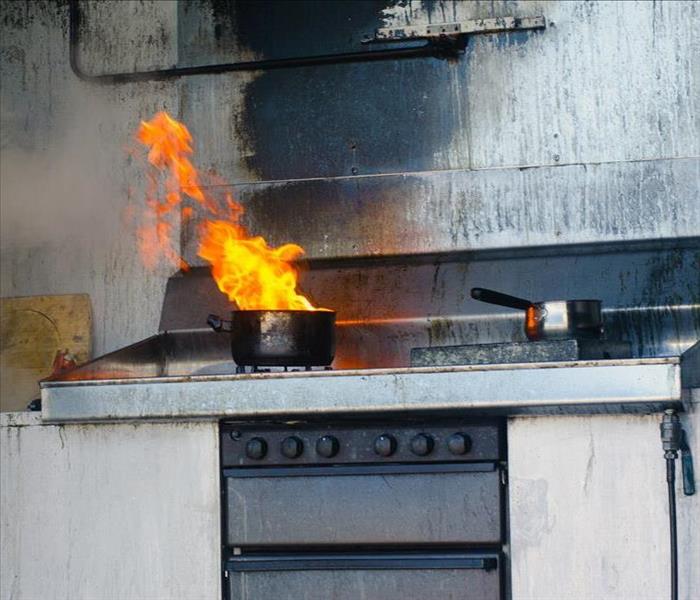4 Ways To Extinguish Grease Fires
5/25/2021 (Permalink)
You may use your Roanoke Rapids, NC, kitchen every day, but fire risk probably isn't at the top of your mind. Unfortunately, it's always a risk, so it's essential to prepare in case flames develop. A grease fire can start within mere seconds of a tiny amount of grease hitting a burner on your stovetop or the inside of your oven. Just as important as knowing how to put out the flames is understanding what not to do; NEVER put water on burning grease. Instead, familiarize yourself with a few quick and safe methods of extinguishing grease fires.
Methods of Extinguishing Grease Fires
1. Smother With Salt or Baking Soda
Salt or baking soda works well for smothering flaming grease. Fire damage experts will advise you to drop either substance directly on top of the flames. Tossing it from the side of the fire can cause the fire to spread, possibly even outside of the pan.
2. Cover With a Cookie Sheet
A metal cookie sheet should be kept within reach when you're cooking, as it can cover bigger pots and pans. If you have a grease fire on the stove, slide the cookie sheet over the flames and leave it there until it has cooled.
3. Cover With a Lid
Covering a flaming pan with a pan lid can snuff out a fire. The lid should fit snugly over the top of the pan. Keep the pan as still as possible as you're doing this; movement can cause the grease to splash, only spreading the flames.
4. Use an Appropriate Fire Extinguisher
Class B fire extinguishers are designed to work for most kitchen fires. However, they don't work as well for grease fires. Class K extinguishers are designed especially for use on combustible liquids, so always keep one at arm's reach in your kitchen.
When cooking with hot oil, there's always a risk of a grease fire. Preparation is the key to significantly minimizing or even preventing damage. Either way, fire cleanup will be necessary afterward to ensure no grease remains to start another fire.




 24/7 Emergency Service
24/7 Emergency Service
